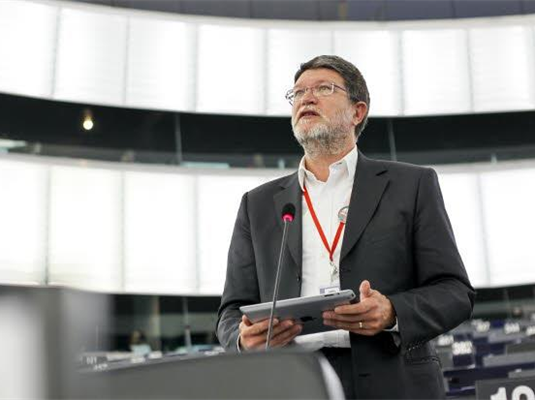Regarding Croatia's transition and the satisfaction of its citizens, Picula stated, "After the phase of Europhoria and later Euroscepticism during certain phases of accession negotiations, Croatians have become solid Eurorealists for some time now. They measure Croatia's EU membership by tangible things, by what membership means in their everyday lives. The EU still offers opportunities for Croatia, and it is important to know how to make use of those opportunities. However, I believe we haven't made much progress in terms of adopting certain key EU values. I like to say that we are slowly mastering the art of accessing EU funds, but we are not champions in embracing the values upon which the EU is founded. Over the past decade, identity issues have emerged, leading to a confrontation of various value positions, but this could have been expected. All communities with an authoritarian or totalitarian past, upon entering the democratic space, give everyone a chance to express themselves. By 2033, when two decades of EU membership will coincide with Croatia's second presidency of the EU Council, we need to work on adopting the values that have enabled the development of the most successful EU members."
Regarding EU enlargement, Picula estimates that it won't happen before the end of this decade. He said, "A vast majority in the EP hoped that this mandate from 2019 to 2024 would conclude with at least one finished negotiation. But even during the pandemic, it was clear that this wouldn't happen. The traumas of EU contraction after Brexit were still fresh. As things stand now, after a good year for enlargement in 2022, partly due to geopolitical shifts thanks to Putin, we are returning to the familiar routine of unresolved conflicts in the Western Balkans. However, enlargement won't come to a halt as such. It has gained momentum thanks to an increased strategic culture in the European Union. Let's not forget, that with Croatia, the EU gained a unique experience. A country that went through war and a complex transition. However, EU membership does not provide absolute protection against the degeneration of the democratic system."
Picula concluded that a focus on balancing common interests and political differences is crucial for a community to progress. Nonetheless, the political community follows its own rhythm of divergent interests, and political parties in Croatia, as drivers of political dynamics, should be more closely aligned with the cluster of European values.


